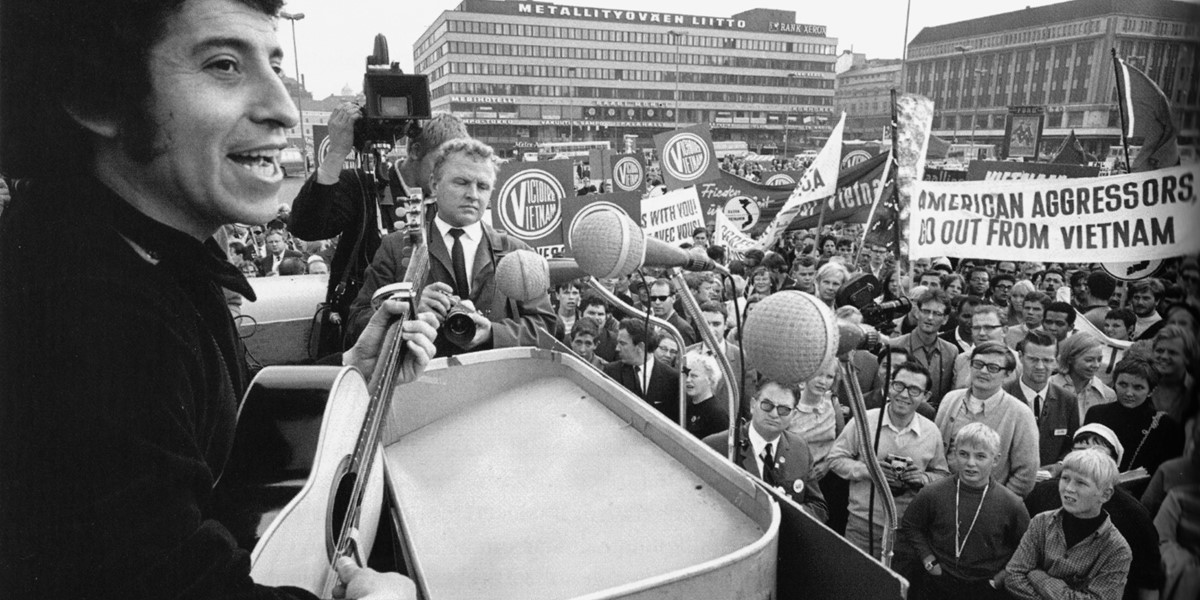Tuesday, January 28, 2020
Víctor Jara: A Beginner's Guide
Nearly 50 years a¤er his death, Víctor Jara’s songs continue to inspire idealism across Latin America. Chris Moss recalls Chile’s pre-eminent protest singer

Víctor Jara performing in Helsinki at a protest against the war on Vietnam, 1969 (Photo by Hannu Lindroos/Lehtikuva)

Register now to continue reading

Thanks for visiting the Songlines website, your guide to an extraordinary world of music and culture. Sign up for a free account now to enjoy:
- Free access to 2 subscriber-only articles and album reviews every month
- Unlimited access to our news and awards pages
- Our regular email newsletters

